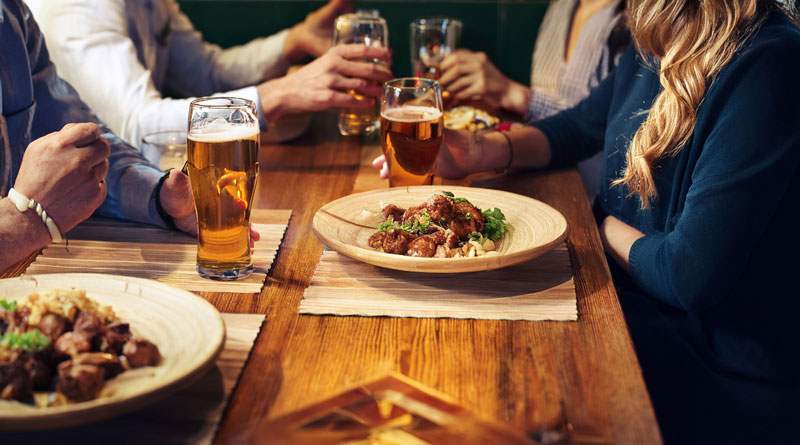On-Trade Spending Dips as Budget Uncertainty Weighs on Consumer Behaviour

Britain’s pubs, bars and nightclubs experienced a downturn in custom during September, with transaction data revealing a half-percentage point decline compared to the same period last year.
The contraction in on-trade spending formed part of a broader pattern of cautious consumer behaviour, as households reduced non-essential expenditure in anticipation of the government’s autumn fiscal statement scheduled for November.
According to payment card data analysis by Barclaycard, the wider hospitality sector managed only marginal growth of 0.4% year-on-year. Within this, food-led establishments including restaurants, coffee shops and bakeries recorded a modest 0.8% uplift, whilst delivery and takeaway services contracted by 0.6%.
The figures indicate that consumers are reconsidering even relatively modest indulgences, with traditional “affordable treats” coming under scrutiny as family budgets face pressure.
Broader economic indicators painted a similar picture, with overall consumer card transactions falling 0.7% year-on-year. Spending on essential goods and services showed a more pronounced decline of 2.6%, suggesting households are making difficult choices across all categories.
The analysis suggests widespread pre-emptive action by consumers, with approximately half of UK adults reportedly making adjustments to their household finances in recent weeks. Of these, around one-third are prioritising building financial reserves rather than maintaining previous spending patterns.
Spending on public transport saw its greatest decline since March 2021 in September, down -2.6 per cent, following widespread transport strikes. Over one in three (36 per cent) Londoners said strike action reduced their monthly outgoings, with the biggest savings made on office food or lunches (£29 less), eating out (£29 less) and non-food retail (£26 less). Overall, face-to-face spending decreased -1.6 per cent across the UK – its greatest fall since June 2024.
The travel category saw marginal annual growth of 0.8 per cent in September, below August’s 3.1 per cent. Within this, travel agents saw the strongest performance, up 4.2 per cent, however hotel spending (-2.2 per cent) dipped for the first time since July 2024 and airlines (-4.3 per cent) declined for the first time in over four years. Looking ahead, 38 per cent of those planning to cut non-essential spending say they will spend less on holidays abroad.
Takeaways, however, dipped -0.6 per cent in September, as 53 per cent of those looking to reduce discretionary outgoings intend to spend less ordering meals “on-demand”. Of those treating themselves even when on a budget, a quarter (24 per cent) are opting to buy ingredients to make home-made treats, which likely contributed to the 1.5 per cent growth in food and drink specialist stores.
Karen Johnson, Head of Retail at Barclays, said:
“It is encouraging to see that UK consumers feel confident in their ability to manage their budgets, amid ongoing cost of living concerns. We’re continuing to see cautious spending, and shoppers are consistently seeking out areas they can cut back on. However, multiple retail categories have proven to be resilient in recent months, with furniture, clothing, and beauty all remaining in growth since February of this year.”
Julien Lafargue, Chief Market Strategist, Barclays Private Bank and Wealth Management, said:
“Although spending habits keep evolving, the UK consumer remains resilient in the face of an uncertain macroeconomic backdrop. With wage growth continuing to outpace inflation, there is room for spending to accelerate again when visibility improves.”
